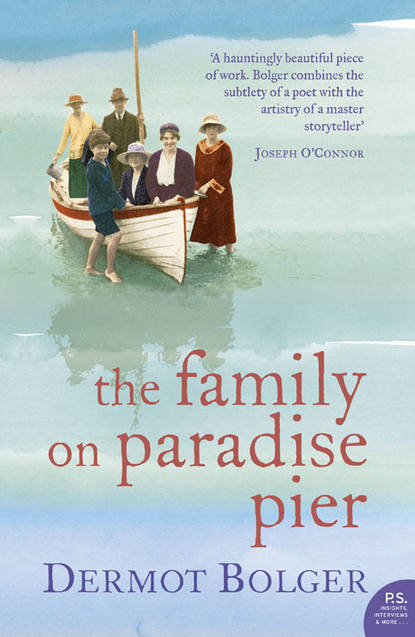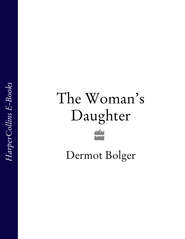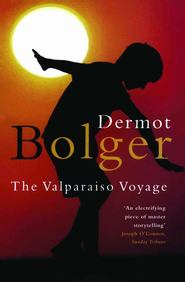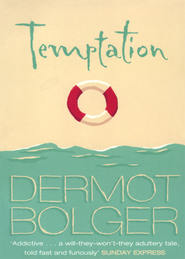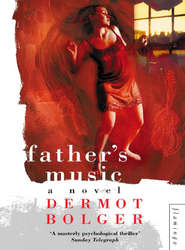По всем вопросам обращайтесь на: info@litportal.ru
(©) 2003-2024.
✖
The Family on Paradise Pier
Настройки чтения
Размер шрифта
Высота строк
Поля
Finally the task was finished and Mrs Ffrench saw her guest to the door, knowing that Eva would pause on the lawn to count each lamp that beckoned to her and to Ireland and across the seas to where her husband knew that they were being lit. Eva said good night and Mrs Ffrench had to resist a impulse to embrace her. The thought of all the marvellous Goold Verschoyle children being home for Christmas filled her with hope. She would carefully choose presents for each one, making sure that they knew her door was always open. Sometimes she imagined a fantasy where young Brendan was trapped here by a snowfall and she was able to mind him for some days until the road cleared.
Mrs Ffrench stood in her doorway until Eva was out of sight and there was nothing for it but to close the door. Lizzy, the parlourmaid, was descending the stairs. Mrs Ffrench smiled to put her at ease.
‘That was a good day, Lizzy.’
‘It was indeed, mam.’
‘The party went well.’
‘Yes, mam. Will there be anything else, mam?’
‘No.’
The girl hesitated. Mrs Ffrench suspected that some servants, including Lizzy, might feel happier in a house where the mistress never addressed them except with an order.
‘Have you the lamps lit, mam?’
‘Yes, Lizzy.’
‘We do the same for you, mam.’
‘What do you mean?’ Mrs Ffrench was puzzled.
‘If we’re passing the church, the other maids and me always light a candle for you. That’s what us Catholics do for special intentions. All of us are praying that when the Commodore comes home things will go well for you and it will be a boy.’
Mrs Ffrench was momentarily too shocked to speak.
Suddenly aware that she had been too forward, the maid went to apologise, then realised that this could only make matters worse.
‘I light my lamps for a different reason,’ Mrs Ffrench replied icily.
‘Yes, mam. I wouldn’t know, mam.’
‘Your Master and I…’ Mrs Ffrench stopped in time, shocked that she was explaining herself in front of a servant. ‘That will be all, Lizzy.’
‘Yes, mam.’
The girl curtsied and scurried away. Mrs Ffrench entered the library that was in darkness except for the lamp in the window. They would be whispering about her in the kitchen like they always whispered. She had tried to create a household where servants were not in dread of their mistress, but she had never envisaged that they would feel pity for her. She hoped that no maid would come in to stoke the fire. She wanted to be alone. She had never felt so utterly alone. Mrs Ffrench took a deep breath. This war would pass. Her husband would return from Murmansk as a hero, having fought off the menace of Bolshevism. Her bed linen would be stained with blood, only this time good cleansing blood from her labours in childbirth. She would welcome every wave of pain, every push that it took. She would be made whole then, she would illuminate Ireland and her child would illuminate her life. The Master had ordained this ordeal to test her faith, but she would be strong and learn to be patient. Rocking herself softly back and forth, Mrs Ffrench waited for her true life to begin.
FOUR The Motor (#ulink_6e079e67-ae99-5e68-a9f7-81cc02153df5)
Donegal, August 1919
Maud was surprised at the ease with which she discovered the location of the remote cottage being used as a temporary headquarters by the local IRA commander. A mark of how the villagers trusted the family was that it only took Art five minutes to emerge from the smoky gloom of MacShane’s public house with directions and a respectful warning that he might be found with a bullet in his head if he did not keep his mouth shut. But it had not gone unnoticed how the family had so far declined to contact the constabulary about last night’s incident, which had begun when Brendan announced at dinner that he could see men moving about in the coach house. They had all watched from the window as four armed strangers pushed the family’s battered Ford across the yard to the gate, then cranked up the starting handle, climbed in and drove off.
Father had placed a hand on Maud’s shoulder when sensing her about to intervene. Last year his cousin the Countess became the first woman ever elected to the British House of Commons. She refused to take her seat however, setting up an illegal assembly in Dublin with other Sinn Fein MPs instead, which proclaimed the right of its volunteers to use arms. Donegal had seen little of this new lawlessness, but remote police barracks were being attacked, and there had been raids on Big Houses by masked men seeking weapons.
Locals knew that Father didn’t hold a gun licence, so last night’s raid was confined to the outbuildings. But Maud was determined to recover the motor. Father had no idea about this expedition but Father rarely bothered to use the motor, whereas, since finishing school, Maud had become at eighteen the first female in Donegal to drive. Learning was not easy, because Father, himself an infrequent driver, had been nervous about teaching her. But after Art was given permission to drive the motor, there had been no way in which Maud was going to be forbidden. Now, having fought for that right, she was simply not going to simply see their motor stolen. She did not wish to bring Art, but after divulging the address he had refused to let her cycle up into the hills alone.
Although she thought she knew the area, Maud would have been lost by now except that Art had a mental map of every sheep track for miles around. The sixteen-year-old rarely paused for bearings, but cycled up the negotiable parts of the steep track and carried his bicycle over stretches potholed beyond repair. By now they were probably being watched. The IRA lookout would think them picnickers at first, only growing alarmed as their destination became clear. Maud knew that she was taking a huge risk and their informant in the village might be in danger too. Yet all she could think about was the damage surely inflicted on the motor when it was driven up this rough boreen. Branches on both sides must have destroyed the paintwork.
Art stopped to scan the hilltop where, beneath a clump of trees, there was the entrance to a cottage.
‘Do you think they’re really there?’ he asked.
‘They will have seen us coming for miles.’ Maud looked back down the steep hill. Having left Dunkineely fuelled by righteousness, she was now apprehensive, sensing that the respect she was accustomed to might be absent in this new world of desperadoes. Would they be locals whose faces she knew, or strangers? Which would be the most dangerous? It was whispered that flying columns rarely stayed under one roof for more than a few nights. Their chief weapon against the army was inconspicuousness, the ability to blend back into the local populace. So few motors existed in Donegal that using one would be a death warrant for such a column, making their movements easy to track. But perhaps it had been stolen for use in a one-off attack.
‘You stay here,’ Art said. ‘This is men’s work.’
His remark banished uncertainty from Maud’s mind.
‘You stay,’ she retorted. ‘This is for grown-ups.’ In the end they raced each other up to the farmyard. Only when they swung through the gate did the two armed men stand up. It was hard to see their faces beneath the caps. Maud knew they would not shoot her, but Art might be a different matter. She tried to control her fear and dismounted, speaking authoritatively.
‘I want to speak to whoever is in charge.’
‘What are you doing here?’ a man snapped back.
‘I will speak only to whoever is in charge.’
‘He’s off about his business,’ the older man replied.
‘I’ll wait.’
‘Aye, you’d better do that.’
They lowered their guns, reluctant to aim at a young woman and a boy. Maud was relieved that Art stayed silent, because Marlborough College had eroded any trace of an Irish accent. He nudged her elbow, nodding to a hastily constructed turf rick beside the cottage, which could not conceal the car parked behind it. The men glanced at each other, uncertain of what to do.
‘Would you be Miss Goold Verschoyle?’ the first one asked.
‘I am,’ Maud replied.
‘Step inside the cottage like a good woman and bring the young master with you. Who told you where to find us?’
‘We followed a trail of broken branches. It would be easy enough for the military to do likewise.’
‘What have you told the military?’ the man demanded.
‘We told them nothing.’ Art spoke for the first time. ‘We’re all Irishmen together.’
The men said nothing, looking amused.
‘We don’t need to tell them,’ Maud added quickly. ‘A motor car is a big object. It will be as hard for us to hide the fact of not having one as it is for you to hide the fact that you do.’
‘That’s what I told him,’ the first man hissed to his comrade. ‘The damn yoke is a stone around our necks.’
‘That’s enough.’ The second man nodded towards the cottage door. ‘Step indoors and if there’s any sign of the military you’d best run for it like us because they only start questioning when they’re finished shooting.’
A small fire provided some light in the gloom of the cottage. The thatch was discoloured, the whitewash long faded. An elderly couple stood up as they entered and silently beckoned for them to take the two chairs, ignoring their protestations. The old man went outside and Maud heard low voices through the doorway before the youngest volunteer mounted Art’s bicycle and set off down the rutted lane. The old woman was making strong tea for them, tasting of peat. She paused to take a bottle of clear liquid from the mantelpiece and added a sup of illicit whiskey to Art’s cup. Then she disappeared, leaving brother and sister alone.





